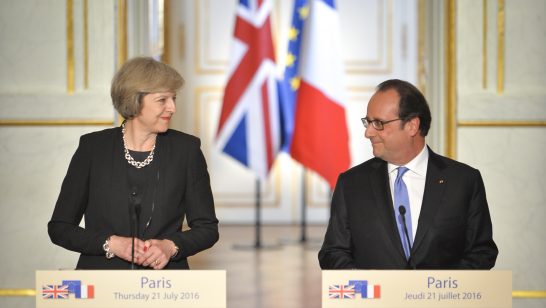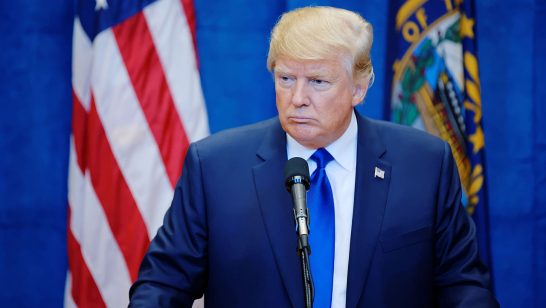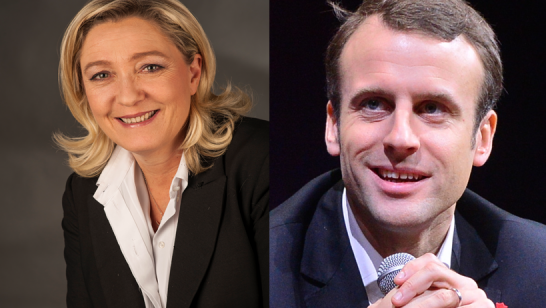
From my point of view I can say that the foreign and security policy of the United States is an invariant block regardless of the administration in Washington. If I had only one sentence to present my opinion I would say that the 45th President of the United States says out loud what all of his predecessors used to think without saying.
As was the case with previous presidents, Mr. Trump does not know much about these issues at the beginning of his mandate. He has a very schematic view of the main European powers.[1] The UK is a historical ally, but is considered strategically less important than in the past. Germany is the continental economic power which matters more to him, but it cannot become a ‘normal’ political power.
France is occasionally celebrated for having helped Washington to gain independence but, despite being a country with which the US has never been at war, it is regularly opposed when it comes to world view. Some examples of this division from the previous decades include: Roosevelt’s, Truman’s, and Eisenhower’s policy opposing colonialism in Indochina, followed shortly after by the US invading Vietnam; Kennedy’s brutal “no” to a proposal by de Gaulle regarding a trilateral caucus for nuclear issues within NATO, in spite of the French President being a primary ally in the 1962 Cuban missile crisis; or Bush Jr’s bashing of France in a truly unacceptable way about nuclear weapons in Iraq, which in fact did not exist. Granted, we can find opposing examples when the US helped France on many occasions.
All these examples underline the fact that foreign policy is a national issue which cannot be compromised on. In France, we shall modify nothing, and we must be prepared to support, help, react, or oppose US policies in particular areas.
There are some instruments of influence that remain important for France’s position. Due to Brexit, France will be the only member of the EU acting as a permanent member of the UN Security Council. France is still the major military power on the European continent, at a level of competence equaled by no other European NATO nation. For example, in 2015 the command of the US naval forces groups (CTF 50) within the 5th Fleet in the Indian Ocean was given to the French Admiral commanding the Charles de Gaulle Carrier group. The Pentagon respects its French ally, which operates aircraft carriers, SSBN and SSN and thus has a global reach. Finally, France is a major partner of the US in the fight against ISIS, a leader in counter-terrorism in Africa and a partner in Iraq and Syria.
What could we expect from the new administration vis-à-vis NATO? Frankly, it is a key issue for others, not necessarily for France. From a military point of view, French re-entry into the NATO military structure in 2009 did not change anything for either side. In 2010 France also signed the Lancaster House treaty with the UK, reinforcing the links between the two militaries and two industries. Nothing has been modified here, Brexit notwithstanding. One can say that during the period of time when France was outside the military structure of NATO, it conducted itself the same as now – as a former carrier group commander, I can testify to that. So a “US exit from NATO” – which will not happen anyway – leaves me indifferent.
How about the other possible foreign policy choices of the Trump administration? After all, we know what he said during the campaign, and we already see significant changes regarding national security, economy, and trade, protectionism and immigration. He has already started a conflict with Mexico (the wall), he has signed a decree banning the immigration from seven Muslim countries (but why not Saudi Arabia?) which obviously will be bypassed easily. There was denunciation of China’s unfair competition and threatening to tax Chinese’s imports at 45%, as well as abandonment of the transpacific partnership and threats to NAFTA.
In Europe, he welcomed Brexit (“it will be a great thing”), announced that it would be followed by other withdrawals from the EU, made a proposal to conclude a trade agreement with London, predictably applauded by the UK Prime Minister and the City, and denounced NATO as “obsolete” due to the poor state of European defence budgets and inadequate efforts against terrorism. My assessment is that on all these issues, he will be much more prudent in actions than in words. On NATO, he will understand soon that the Alliance is a political one which keeps Europeans under an American umbrella, and influence.
In the Middle East, we may witness big changes, but mostly because the current situation is unpredictable. A simple decision (Embassy in Jerusalem instead of Tel Aviv) can tip the balance in this unstable region. Trump is capable of taking such a decision. He is also able to decide to bomb the “terrorists” in the region despite possible civilian victims; then, all western countries starting with France will, as usual, be the targets. Therefore, his Middle Eastern policy can be dangerous for us.
Is Asia, the struggle with China is open. China is already accused of manipulating its currency, of not respecting WTO rules and of strengthening its positions at sea, mainly in the South China Sea. Moreover, Trump said during the campaign that Japan’s defense effort was insufficient, that it should equip itself with nuclear weapons to protect itself.
In conclusion, let me remind readers that when Obama entered the White House in 2009, he immediately signed a decree to close Guantanamo. 8 years later, it is still open. No doubt that the first decrees of President Trump will be called into questions and opposed, also by other US institutions . So let’s wait and see.
[1] The military may have another assessment regarding US security policy. The new Secretary of Defense, whose nomination has been recently approved by Congress, has already refocused the attention of the Pentagon from the excessive comments of the President to a more traditional agenda in his first address to DoD.
The opinions articulated above represent the views of the author(s), and do not necessarily reflect the position of the European Leadership Network or any of its members. The ELN’s aim is to encourage debates that will help develop Europe’s capacity to address the pressing foreign, defence, and security challenges of our time.



